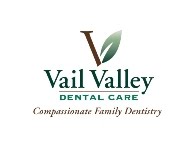According to research from the American College of Chest Physicians (ACCP), teeth grinding, or bruxism, and sleep apnea have a connection that goes far beyond being nocturnal nuisances. Researchers found that nearly one in four patients with obstructive sleep apnea (OSA) also suffer from sleep bruxism. This relationship is particularly common in men and Caucasians compared with women and other ethnic groups. “The relationship between obstructive sleep apnea and sleep bruxism is usually related to an arousal response. The ending of an apneic event may be accompanied by a number of mouth phenomena, such as snoring, gasping, mumbles, and teeth grinding,” said Shyam Subramanian, MD, Baylor College of Medicine, Houston, Texas. “Men typically have more severe sleep apnea, and perhaps may have more arousal responses, which may explain the higher prevalence of teeth grinding in men.” Emotions also may play a part in this relationship, as sleep loss due to OSA may lead to high levels of anxiety, which is one of the main causes of bruxism.
Untreated bruxism can cause major dental damage, including excessive tooth wear or decay, jaw pain, and periodontal tissue damage. It can also cause individuals to experience headaches and sleep disturbances. “When treating sleep apnea, clinicians must also recognize and address secondary health conditions, such as bruxism, in order to fully manage a patient’s sleep disorder,” states Kalpalatha Guntupalli, MD, President of the ACCP. As dentists are the most qualified clinicians to diagnosis bruxism, individuals with OSA should schedule regular visits with their dentist to ensure that they are not grinding away at vital tooth structure late into the night.
Subscribe to:
Post Comments (Atom)

No comments:
Post a Comment